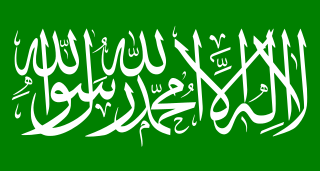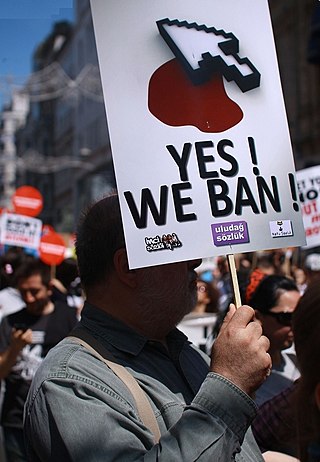Related Research Articles

This article is about the demographic features of the population of Turkey, including population density, ethnicity, education level, health of the populace, economic status, religious affiliations and other aspects of the population.

The Turkish Radio and Television Corporation is the national public broadcaster of Turkey, founded in 1964. TRT was for many years the only television and radio provider in Turkey. Before the introduction of commercial radio in 1990, and subsequently commercial television in 1992, it held a monopoly on broadcasting. More recent deregulation of the Turkish television broadcasting market produced analogue cable television. Today, TRT broadcasts around the world, especially in Europe, Middle East, Africa, Asia, USA, and Australia.

Adıyaman Province is a province in the Southeastern Anatolia Region of Turkey. The capital is Adıyaman. The province is considered part of Turkish Kurdistan and has a Kurdish majority.

Kurdish Hezbollah known in Turkey as Hizbullah, and known among Kurds as Sofîk is a Kurdish Sunni Islamist militant organization, active against Turkey, and the PKK.

The mass media in Turkey includes a wide variety of domestic and foreign periodicals expressing disparate views, and domestic newspapers are extremely competitive. However, media ownership is concentrated in the hands of a few large private media groups which are typically part of wider conglomerates controlled by wealthy individuals, which limits the views that are presented. In addition, the companies are willing to use their influence to support their owners' wider business interests, including by trying to maintain friendly relations with the government. The media exert a strong influence on public opinion. Censorship in Turkey is also an issue, and in the 2000s Turkey has seen many journalists arrested and writers prosecuted. On Reporters Without Borders' Press Freedom Index it has fallen from being ranked around 100 in 2005 to around 150 in 2013.
Roj TV was an international Kurdish satellite television station broadcasting programmes in the Kurmanji, Sorani and Hewrami dialects of the Kurdish language as well as in Persian, Zaza, Arabic, and Turkish.
Kurds have had a long history of discrimination perpetrated against them by the Turkish government. Massacres have periodically occurred against the Kurds since the establishment of the Republic of Turkey in 1923. Among the most significant is the Dersim rebellion, when 13,160 civilians were killed by the Turkish Army and 11,818 people were sent into exile. According to McDowall, 40,000 people were killed. The Zilan massacre of 1930 was a massacre of Kurdish residents of Turkey during the Ararat rebellion, in which 5,000 to 47,000 were killed.

Censorship in Turkey is regulated by domestic and international legislation, the latter taking precedence over domestic law, according to Article 90 of the Constitution of Turkey.
Alperen Hearths, officially the Alperen Hearths Foundation for Education, Culture, and Solidarity or simply known as Alperens, are a far-right youth organization affiliated with the Great Unity Party in Turkey.

Tell Abyad is a town in northern Syria. It is the administrative center of the Tell Abyad District within the Raqqa Governorate. Located along the Balikh River, it constitutes a divided city with the bordering city of Akçakale in Turkey.

The Battle of Ras al-Ayn was a series of armed clashes for control of the town of Ras al-Ayn during the Syrian Civil War, mainly between the Kurdish-majority People's Protection Units (YPG) and an alliance of Syrian rebel groups, with the occasional involvement of the Syrian Armed Forces. As result of the battle's first phase, the Syrian Army was expelled from the city by Syrian rebels, whereupon the latter attacked the YPG-affiliated fighters in Ras al-Ayn. In the following months, the city was effectively divided into rebel-held and YPG-held areas, with intermittent fighting resulting in the gradual expansion of the YPG's territory in the city and its surroundings. Islamist and jihadist factions soon became dominant among the rebels in the region, further contributing to tensions with the secular-leftist YPG. In July 2013, the battle's final phase erupted and ended when an alliance of YPG-led troops completely expelled the rebels from Ras al-Ayn.
Hayatın Sesi TV was a Turkish nationwide TV channel established in 2007. It is one of the Turkish channels which gave extensive live coverage of the 2013 protests in Turkey; one of its reporters, Ismail Afacan, was injured by a water cannon.

Kobanî, officially Ayn al-Arab, is a Kurdish-majority city in northern Syria, lying immediately south of the Syria–Turkey border. As a consequence of the Syrian civil war, the city came under the control of the Kurdish-majority People's Protection Units (YPG) militia in 2012 and became the administrative center of the Kobani Canton, later transformed into Euphrates Region of the Autonomous Administration of North and East Syria.
In late July 2015, the third phase of the Kurdish–Turkish conflict between various Kurdish insurgent groups and the Turkish government erupted, following a failed two and a half year-long peace process aimed at resolving the long-running conflict.
Controversies during the Turkish general election of November 2015 mainly centred on the escalating violence in the south-east and the rise in domestic terrorist attacks linked to both the Kurdistan Workers' Party (PKK) and the Islamic State of Iraq and the Levant (ISIL). International concerns also grew over an increase in media censorship, with the government being accused of specifically targeting news outlets known to be close to the Gülen Movement such as Kanaltürk and Bugün TV. Safety concerns due to the escalating conflict resulted in the government proposing to merge ballot boxes in affected areas and to transport them to safer locations, though the opposition criticised the move as an attempt to decrease the votes of the Peoples' Democratic Party (HDP), which polled strongly in the June 2015 general election.

Zarok TV is the first Kurdish satellite television station in Turkey for Kurdish children, broadcasting since 21 March 2015, based in Diyarbakır (Amed). The channel broadcasts programs in various Kurdish languages, specifically Kurmanji, being the most widely spoken Kurdish dialect in Turkey, Zazaki and some Sorani.
The 2016–present purges in Turkey are a series of purges by the Government of Turkey enabled by a state of emergency in reaction to the 15 July failed coup d'état. The purges began with the arrest of Turkish Armed Forces personnel reportedly linked to the coup attempt but arrests were expanded to include other elements of the Turkish military, as well as civil servants and private citizens. These later actions reflected a power struggle between secularist and Islamist political elites in Turkey, affected people who were not active in nor aware of the coup, but who the government claimed were connected with the Gülen movement, an opposition group which the government blamed for the coup. Possession of books authored by Gülen was considered valid evidence of such a connection and cause for arrest.
Turkey's media purge after the failed coup d'état on July 15, 2016 resulted in the shutdown of at least 131 media outlets and the arrest of 117 journalists – at least 35 of whom have been indicted for "membership in a terror group".
References
- 1 2 Susae Elanchenny, Narod Maraşlıyan, Breaking the Ice: The Role of Civil Society and Media in Turkey-Armenia Relations , GPoT, p26
- ↑ Talin Suciyan, The Armenian Weekly, 20 June 2011, Suciyan: The Elections in Turkey: An Assessment
- ↑ Fehim Taştekin , 30 May 2013, Turkey’s Kurdish Policies Complicate Ties With Iran, Iraq Al-Monitor
- ↑ bianet, 2 April 2013, Turkey's First Trans TV Reporter Reveals Her Story
- ↑ Committee to Protect Journalists, 5 June 2013, In Turkey, threats to restrict Internet, journalists attacked
- ↑ "Emek Dünyası :: Emek Dünyası editörü Gökhan Biçici gözaltında darp edildi". Archived from the original on 19 October 2016. Retrieved 14 October 2016.
- ↑ Hamza Aktan [@hamzaaktan] (16 June 2013). "Polis, gazeteci arkadaşımız Gökhan Biçici'yi darp etti, yerlerde sürükledi... Gökhan hala gözaltında..." (Tweet) – via Twitter.
- ↑ "Police raid TV station over 'terror propaganda,' cut broadcast - LOCAL". 4 October 2016. Retrieved 14 October 2016.
- ↑ "İMC TV de kapatıldı" [IMC TV was also closed] (in Turkish). BBC World Service. 30 September 2016. Retrieved 4 October 2016.
- ↑ "Turkey police shut down pro-Kurdish TV channel live on air". Gulf News . 4 October 2016. Retrieved 4 October 2016.